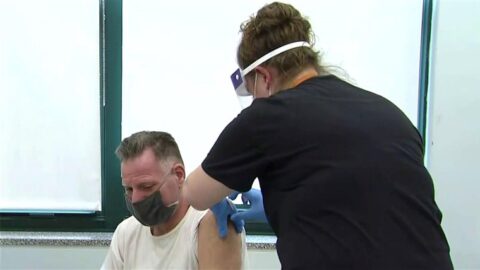
Public health officials in Europe and the United States are investigating dozens of puzzling cases of severe hepatitis in young children.
Hepatitis is an inflammation of the liver. The cause is often a virus, but the viruses that commonly cause the illness — hepatitis A, B, C, D and E — have been ruled out in the cases in question, leaving doctors searching for the culprit.
In several cases, the illness was so severe that the children needed a liver transplant. No deaths have been reported.
The World Health Organization on Friday said it was investigating 74 cases of severe acute hepatitis in children under age 10 in the United Kingdom. Three cases were also reported in Spain, the WHO said.
In the U.S., nine cases have been reported in children ages 6 and younger in Alabama. The Alabama cases were first reported by Stat News.
Dr. Wes Stubblefield, district medical officer for the Alabama Department of Public Health, said that all of the children were otherwise healthy before becoming ill, and that there is no obvious link among the children.
With the common hepatitis viruses ruled out, the current leading theory is that a different virus, called adenovirus type 41, is to blame.
Five of the nine children in Alabama, identified between October 2021 and February, tested positive for adenovirus type 41. But adenoviruses are respiratory viruses that typically cause the common cold, and are not generally associated with liver injury.
“This is unusual,” Stubblefield said. “This virus hasn’t, in the past, been associated with this constellation of signs, symptoms and injury.”
In the children in Alabama, symptoms have included diarrhea, nausea and vomiting. Some developed jaundice, and blood tests showed signs of elevated liver enzymes.
The Centers for Disease Control and Prevention is working with the Alabama Department of Public Health to investigate the cases, and is reaching out to other state health departments to see if other cases exist.
“Adenovirus may be the cause for these, but investigators are still learning more, including ruling out the more common causes of hepatitis,” CDC spokeswoman Kristen Nordlund said.
Stubblefield is urging his public health counterparts in other states to be on the lookout for these rare cases, and report them to the CDC or their state health departments.
“If people are seeing unusual symptoms, specifically associated with adenovirus 41 or adenovirus in general, they should be working with either their state department of health or the CDC so that we can better elucidate what this what this is doing and how this potentially is spreading,” Stubblefield said.
Follow NBC HEALTH on Twitter & Facebook.










Recent Comments